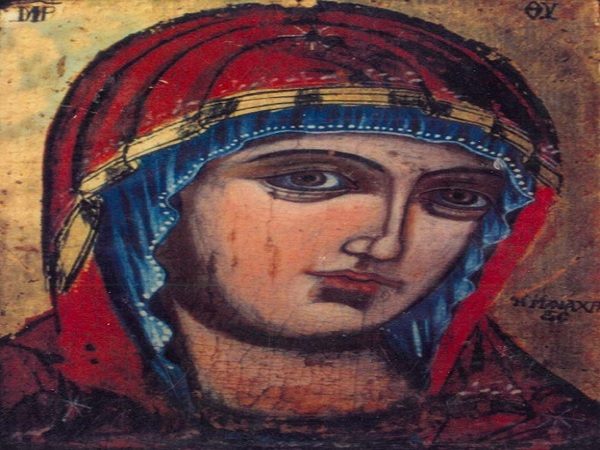The term Mother of God in the Church Fathers and writers
5 September 2016‘The term “Mother of God” in the Fathers of the Church and its use as a criterion of Orthodoxy’
The term ‘Mother of God’ is nowhere to be found in Scripture, as can easily be seen by a consultation of the concordances of the Old and New Testaments. In Scripture, the Mother of God is called Mary (Matth. 1, 16), Virgin (Matth. 1, 23), mother of Jesus (Matth.1, 18), but not Mother of God or All-Holy Lady, terms which are familiar to and popular with the Orthodox. Without doubt, Orthodoxy both depends upon and arises from Scripture and the Tradition of the Church, so we should look for the use of the term in the Tradition of the Fathers of the Church. We shall also be investigating if and how the ‘Mother of God’ arises from Scripture, even if it’s not explicitly stated.
The Fathers of the Church weren’t concerned with changing, or improving the truth, but only with supplying any omission, as Saint Basil the Great says (Epistle 223, To Efsthathios, PG 829B), since they prosper empirically and live the wider experience of this truth, as Stylianos Papadopoulos notes (Πατρολογία Α, Parousia, Athens 1989, p. 36).

The Mother of God All-Pure
The first person to use the term in written form was Origen, in 230 A.D, in his interpretation of Deuteronomy 22, 23: ‘the woman was already betrothed and this was said of Joseph and the Mother of God’. Origen was condemned for other bad doctrines, but not for the name ‘Mother of God’, which would have been the case had this been a new form of address rather than one already in existence and accepted. At an early date, Irinaios, who was born between 130 and 140 A.D. (Papadopoulos, ibid. p. 304) and is considered to be a theologian of tradition (ibid., p. 294), creates the conditions, or more properly indicates the conditions for the term Mother of God in his views on the recapitulation of all things in Christ. According to Irinaios, Christ was born outside time and without beginning, (Examination and refutation of false knowledge B 30, 9, PG 7), rather than in time, as apologists argued. He recapitulates, recreates and renews the whole of His creation, sharing Himself and acting as a model (Papadopoulos, op. cit., p. 297). We take the emphasis on Christ’s birth outside time to be a reference to His divinity. Irinaios also stressed that the only-begotten Son and the Saviour are one and the same, as are the Word of God and Christ, whereas the Gnostics, maintained that they were different Persons (ibid. pp. 297-8). The Mother of God plays an important role in His task of recapitulation. Her role is ‘redemptive’ since she contributes to the spiritual reformation of believers. By her disobedience, Eve started the Fall, whereas Mary, through her obedience became the ‘cause of salvation’ for the whole of humankind (Irinaios, op. cit., C22, 4 PG 7). Papadopoulos concludes that the role of the Mother of God is a great deal more important than simply providing an example (op. cit., p. 298). So if we combine the unity of the person of Christ, His birth outside time and His relationship with Mary, we can claim that, in the thought of Irinaios, Mary gave birth to Christ, Who is God and Who was born outside time, being identical to the Word, and that therefore she can be called the Mother of God. Irinaios doesn’t, in fact, use the term but presupposes the concept. We would say that the contribution of Irinaios, the theologian of tradition, lies in transcending the separation of the persons, though not the natures, which is what the Gnostics did. The unified person of the Word makes it possible for us to say that Mary gave birth to God, and so can be called the Mother of God.
In a letter written in 250 A. D. to Pavlos Samosatevs, [Paul from Samosata, Bishop of Antioch] Dionysios of Alexandria says: ‘He Who was incarnate from the Holy Virgin and Mother of God, Mary’, while Gregory of New Caesarea, the Wonder-Worker says in 275 (Discourse on the Annunciation): For the Holy Mother of God cried aloud this hymn of prophecy, saying ‘My soul magnifies the Lord’, and Eftstathios [Eustace] of Antioch also uses the term ‘Mother of God’ (Πατρολογία Β, Parousia, Athens 1990, p. 111).
(to be continued)






